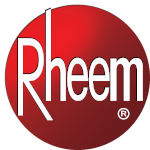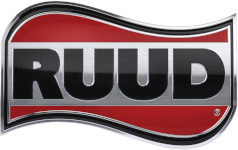As a homeowner in Tyler, TX, maintaining your heating and cooling system is crucial to ensure optimal performance and indoor air quality. One essential aspect of heating and cooling maintenance is regularly changing the air filter. You may be wondering, how do I know when it’s the right time to change the filter in my system, and why is it so important? Staying on top of regular filter changes can significantly improve the life of your system while keeping your home comfortable.
Why Is Air Filter Replacement Important?
The air filter in your heating and cooling system plays a vital role in maintaining indoor air quality by capturing dust, allergens, pet dander, and other particles. Over time, the filter accumulates dirt and debris, causing it to become clogged. A clogged filter restricts airflow, making your heating and cooling system work harder to heat or cool your home, leading to decreased efficiency and potentially higher energy bills.
How Often Should I Change My HVAC Filter?
The frequency of air filter replacement depends on various factors, including the type of filter, indoor air quality, household conditions, and the system itself. However, a general guideline for homeowners in Tyler, TX, is to replace the air filter every 60 to 90 days for standard 1-3 inch thick filters.
For households with pets or individuals with allergies, replacing the filter more frequently, approximately every 30 to 45 days is advisable. Pet dander and increased allergens can accumulate more rapidly, impacting indoor air quality.
Signs That It's Time for a New Air Filter:
Several indicators suggest it's time to replace your filter:
- Visible Dirt Buildup: Check the filter visually; if it looks clogged or dirty, it's likely due for replacement.
- Decreased Airflow: If you notice reduced airflow from vents or rooms feeling less comfortable than usual, a dirty filter might be the cause.
- Increased Allergy Symptoms: If household members experience worsened allergy symptoms, it could be due to a clogged filter not effectively capturing allergens.
Choosing the Right Filter for Your Heating and Cooling System:
Consider the MERV (Minimum Efficiency Reporting Value) rating when selecting a new air filter. Higher MERV ratings indicate better filtration, capturing smaller particles. However, higher-rated filters might also restrict airflow more than lower-rated ones, impacting system performance.
For Tyler, TX residents, especially those concerned about allergens or air quality, a filter with a MERV rating between 8 and 13 is generally recommended. Consult C. Woods Company for guidance on the most suitable filter for your HVAC system and household needs.
Regularly changing your filter is a simple yet crucial aspect of home maintenance. By adhering to a proper filter replacement schedule and selecting the right filter for your system, you can ensure optimal indoor air quality, extend the life of your heating and cooling system, improve energy efficiency, and maintain a comfortable environment for your family. For expert advice and assistance with filter replacement or HVAC maintenance, contact C. Woods Company today.






